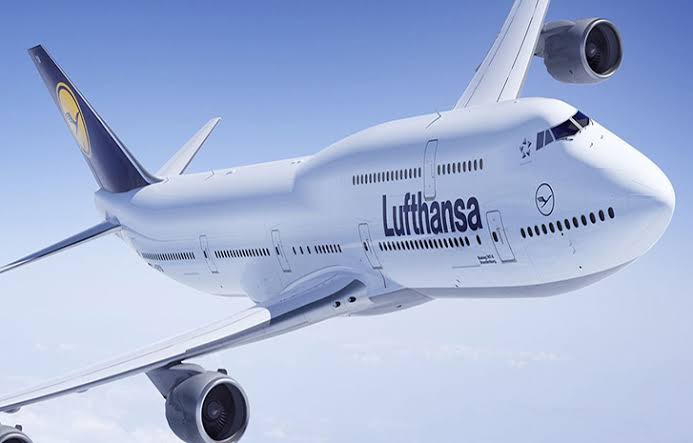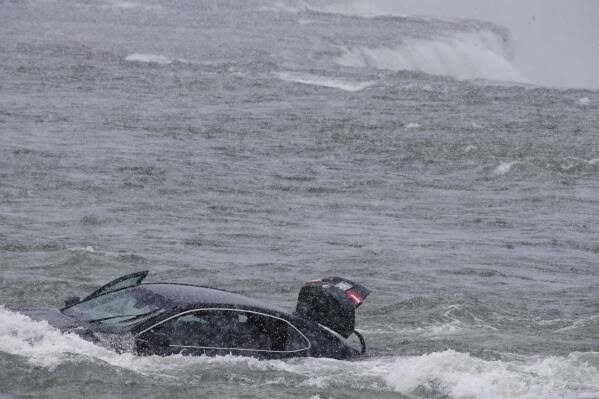Lufthansa Flight Diverts to Baku for Emergency Landing Following Technical Issues
Lufthansa Flight Diverts to Baku for Emergency Landing Following Technical Issues
In a display of aviation safety protocols and international cooperation, a Lufthansa flight en route from Frankfurt, Germany, to Bangkok, Thailand, was forced to make an emergency landing in Baku, Azerbaijan, after encountering technical difficulties mid-flight. The incident occurred on August 4, 2022, and although the unexpected diversion disrupted travel plans for hundreds of passengers, all aboard landed safely and without injury.
The aircraft involved was a wide-body Airbus A340-300, a long-haul aircraft commonly used for intercontinental flights by Lufthansa. Carrying approximately 250 passengers and 14 crew members, the flight, designated LH772, departed Frankfurt Airport (FRA) at around 5:30 PM local time and was expected to arrive in Bangkok’s Suvarnabhumi Airport (BKK) the following morning after nearly 11 hours of flying.
However, just under five hours into the journey, while flying over the Caspian Sea region, the flight crew detected a technical anomaly that required immediate attention.
The Mid-Air Complication
According to Lufthansa’s official statement and corroborating accounts from aviation monitoring websites, the aircraft began experiencing abnormal system readings shortly after passing the Black Sea. Passengers did not initially notice anything out of the ordinary, but in the cockpit, the crew received alerts related to the aircraft’s hydraulic system—an essential component that controls flight surfaces, landing gear, and brakes.
While the aircraft was still fully operational and did not lose cabin pressure or engine power, the fault indicated the potential for serious issues if the flight were to continue into remote airspace or descend over mountainous terrain in the latter half of its journey.
Rather than risk a continuation toward Southeast Asia with limited diversion options, the pilots elected to declare a precautionary emergency and divert to the nearest suitable international airport—Heydar Aliyev International Airport (GYD) in Baku, Azerbaijan.
The Emergency Landing in Baku
Baku, the capital city of Azerbaijan, is strategically located between Eastern Europe and Western Asia, making it a common diversion point for transcontinental flights. Air traffic controllers at Baku International coordinated with Lufthansa’s flight crew and quickly granted priority landing clearance.
At approximately 11:45 PM local time, Lufthansa Flight LH772 touched down safely on Runway 16. Emergency response vehicles, including fire engines and medical staff, were deployed as a precaution, though they were not needed.
Passengers remained calm throughout the landing. “The captain came over the intercom and said we were experiencing a technical issue and would be landing in Baku. It was surprising, but they reassured us it was just a precaution,” said Mark T., a business traveler from Germany who was en route to Thailand for a corporate conference.
Once the aircraft reached a designated stand, passengers disembarked normally and were guided through customs procedures into the terminal. Airport staff and Lufthansa’s regional ground services quickly mobilized to accommodate the unexpected influx of international travelers.
Passenger Care and Accommodations
The emergency landing created a logistical challenge not just for Lufthansa, but for Baku airport authorities as well. Many of the passengers did not possess Azerbaijani visas, requiring diplomatic coordination to allow temporary entry.
In a coordinated effort, Azerbaijani immigration officials issued special entry permits for all affected travelers. Lufthansa arranged hotel accommodations across several properties in Baku and provided transportation, meal vouchers, and updates on rescheduling options.
Passengers expressed mixed reactions—some were frustrated by the disruption, while others were simply relieved that the situation had not escalated into something more dangerous.
“It’s inconvenient, sure, but safety first,” said Lisa Berger, a tourist from Switzerland. “The airline handled it professionally, and we got to explore a city we’d never planned to see. It could’ve been worse.”
Families with children were prioritized for accommodations near the airport, and Lufthansa opened a 24-hour hotline for affected travelers to adjust their connecting flights, hotel bookings in Thailand, and other travel-related needs.
—
Aircraft Inspection and Technical Findings
Following the landing, Lufthansa engineers and technicians from Lufthansa Technik were flown into Baku to perform a comprehensive inspection of the Airbus A340. Preliminary assessments revealed an issue within one of the aircraft’s redundant hydraulic systems. While not catastrophic on its own, the malfunction would have presented a safety risk had it been compounded by further system failures during the remainder of the long-haul flight.
The aircraft was temporarily taken out of service and remained grounded for over 36 hours while parts were sourced and repairs completed. Lufthansa emphasized that the decision to divert was in strict accordance with international aviation safety guidelines and praised the flight crew for their vigilance and professionalism.
In a media briefing, a Lufthansa spokesperson stated:
> “The technical issue detected onboard Flight LH772 was not immediately life-threatening but warranted a precautionary diversion. Our crew acted in accordance with established safety procedures and received outstanding support from Azerbaijani aviation authorities and airport personnel. Passenger safety remains our highest priority.”
Azerbaijan’s Role and Response
For Azerbaijan, the incident served as both a challenge and an opportunity to demonstrate its readiness to host large-scale international diversions. Baku’s Heydar Aliyev International Airport is equipped with a Category III instrument landing system, long runways capable of accommodating wide-body aircraft, and a multilingual staff experienced in handling international flights.
The Azerbaijan Civil Aviation Authority also issued a public statement acknowledging the event and commending the coordination between Lufthansa and local aviation services. It read in part:
> “We are proud to have supported a safe landing and smooth handling for the passengers and crew of Lufthansa Flight LH772. Our facilities and personnel are well-trained for such scenarios, and we remain committed to ensuring aviation safety for all carriers flying through our airspace.”
Local media covered the story widely, with some residents noting an uptick in hotel bookings and tourism activity following the influx of passengers. Some travelers took the opportunity to explore Baku’s historic Old City, sample Azerbaijani cuisine, and share photos of their unexpected layover on social media under hashtags like #UnexpectedBaku and #EmergencyLandingAdventure.
—
Passenger Rebooking and Resumption of Journey
Lufthansa arranged a replacement aircraft, which arrived in Baku from Frankfurt the following evening. By August 6, most of the original passengers were rebooked onto a new flight to Bangkok. Some opted to change their travel plans altogether, returning to Germany or continuing to Thailand on alternative routes.
Affected passengers received compensation in accordance with European Union Regulation EC 261/2004, which mandates compensation for long delays and cancellations unless caused by extraordinary circumstances. While technical malfunctions can be exempt from some claims, Lufthansa offered goodwill gestures including flight vouchers and upgrades on future travel.
One passenger, Tom Kruse from Sweden, reflected positively on the experience: “They turned a scary situation into something manageable. I even made a few friends during the unexpected stopover. That’s not something you get every day.”
Aviation Safety and Lessons Learned
The diversion of Flight LH772 reinforces the aviation industry’s core principle: precaution and preparedness over risk. Technical malfunctions, though rare, can happen even on well-maintained aircraft from reputable airlines. What matters most is how such situations are handled—and in this case, Lufthansa’s actions aligned with the highest safety standards.
Aviation experts applauded the crew’s decision to divert early rather than risk continuing into airspace with fewer diversion options. The incident also 
Martin Reiss, a retired commercial pilot and aviation consultant, noted:
> “The fact that passengers are talking about hotels and sightseeing rather than evacuation and injuries says a lot. Lufthansa made the right call, and it’s a strong case study in proactive aviation safety.”
Lufthansa Flight LH772’s emergency landing in Baku due to technical issues was a story of caution, professionalism, and international coordination. While any mid-air emergency can be unsettling, the smooth handling of the incident—from the flight deck to ground staff, maintenance crews, and Azerbaijani authorities—ensured that passenger safety was preserved and disruption minimized.
As air travel continues to connect more distant parts of the world, the ability of airlines and countries to manage unforeseen challenges collaboratively is more vital than ever. For the passengers aboard Flight LH772, what began as a routine journey to Thailand became a memorable story of an unplanned visit to Baku, a smooth resolution to a mid-air scare, and a testament to the strength of global aviation safety systems.






